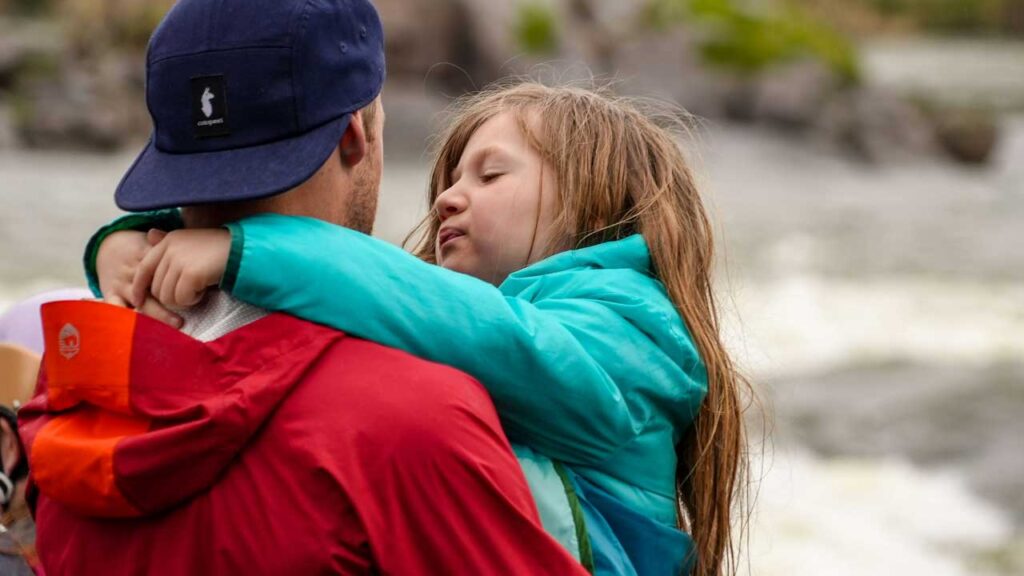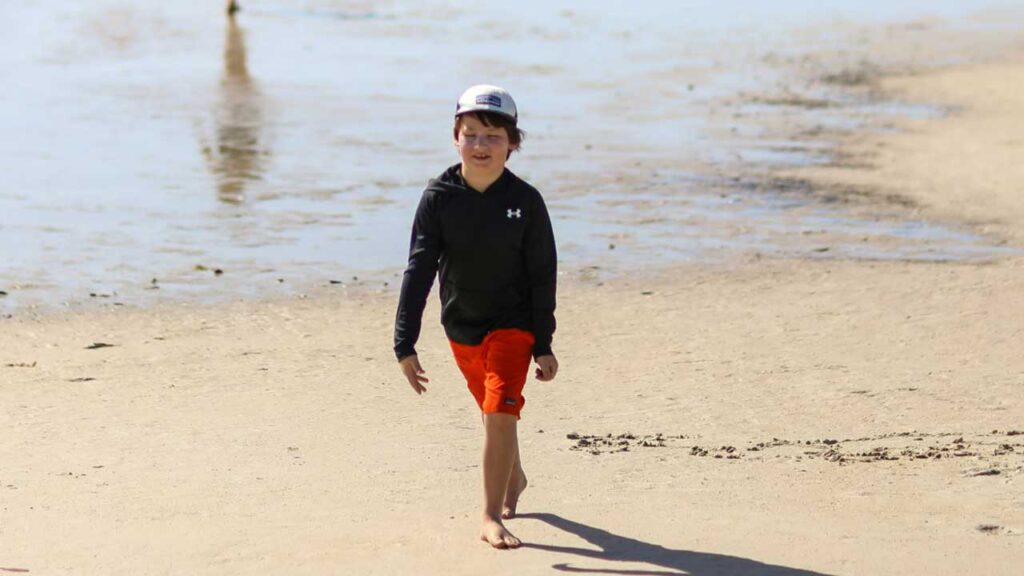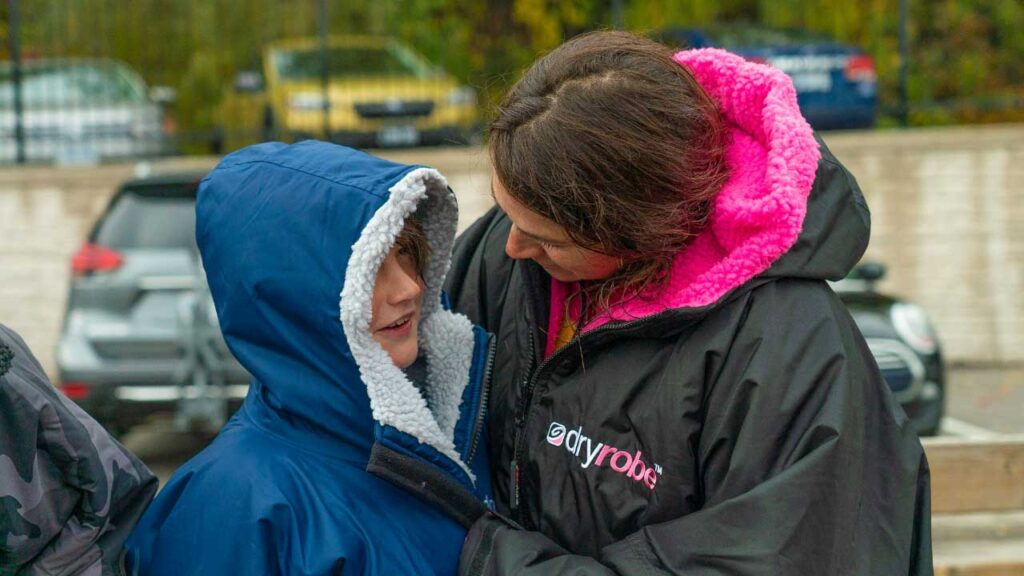We’ve all been there as kids or parents. Out adventuring as a family when the one thing that we hope never happens, happens. The dreaded child tantrum or meltdown. It happens, it’s life, and kids can be unpredictable. Despite the damper tantrums can put on outdoor family time, there are some tried and true ways to deal with the infamous kid fit.
Wait It Out
When my kids are having meltdowns, there are three different approaches that we take. While fits or temper tantrums can be embarrassing, the first thing you can do is ride it out. My daughter Parker definitely has her moments where she’s very angry, loud, and not very nice. You know, the ones when they’re foot stomping and growling. Parker’s a little bit of a wild animal when it happens, even at six years old.

Regardless of the tantrum, I know in the moment that she’s usually asking for attention, and that’s not how I want her to think she can get attention. So, I usually take a step back and give her space. Often when we’re adventuring with our kids, or when we’re on family vacations, finding space is hard. Usually, we’re on top of each other as we spend a lot of time in the car, on a plane, or just in the same room, making personal space feel very tight.

When the kid's emotions are charged, and you’re now stressed out because they’re throwing a tantrum, there is a lot of negative energy in the room. In moments like that, I like to take a step back, be calm, and collect myself as much as I can. Maybe I’ll read my book or just be quiet, but if they get to the point that they’re really upset, I’ll check back in and ask them if they’re okay or if they want to talk. If Parker is then still growling at me or stomping her feet, I’ll go back to ignoring her because that’s not the kind of energy or attitude that I want her to associate with attention.
Work on Your Breathing and Their Breathing
The number two approach for mastering meltdowns—which I've found works most of the time—is working on your breathing. Both our kids, Tucker and Parker, from a very young age, have worked on their breathing. Breathing forces kids into a pause. Instead of telling them to stop growling or stop being angry, for example, telling them to breathe distracts them.
When my kids are having a tantrum, I simply say, “Okay, guys, let’s all take a big yoga breath,” and then everyone kind of pauses and takes a deep breath in and out. We’ll typically do that three or four times, and then by the time they’ve done all that breathing, they’re able to communicate what it is they’re frustrated about.

Sort it Out
Tip number three for dealing with meltdowns or tantrums is to just sort it out. Sometimes talking through it by asking questions can get to the bottom of the issue. My son, for example, is nine, turning ten, so he doesn’t really throw tantrums like his sister. Instead, they’re ‘hissy fits'. Whenever I see him struggling with his emotions, I take a step back and think about asking him some questions. What is it about this that bothers you? What is your sister doing that's annoying you? Is there anything I can do to help you? Are you hungry? Do you need a nap? These are all great examples.

By asking questions, it lets me know what I can do to help because often, when we see these tantrums, it's hard to know what to do. All you know as a parent is that you want it to stop, but as they get older, allowing them to vocalize their issues will really help them recognize that you respect their space and energy while at the same time allowing you to work through the problems together.
I’ve found that trying to understand their frustrations has made me and my kids so much closer because we can talk through things and get to the root of the problem.
Mastering the Meltdowns: Conclusion
So, there you have it. Those are my three tips for mastering meltdowns. Of course, these are just personal experiences that I’ve used throughout my time as a parent, and I’m sure you guys also have plenty of pointers and tips, so be sure to drop them in the comments down below.


Backpack: Cotopaxi Allpa 35L Travel Pack
Clothing: Cotopaxi Fuego Down Kids’ Jacket, Cotopaxi Teca Cálido Reversible Kids’ Jacket, Cotopaxi Fuego Hooded Down Jacket, Cotopaxi Trico Hybrid Women’s Jacket
Hats: Do Good Kids’ Trucker Hat, Cada Dia 5-Panel Hat













